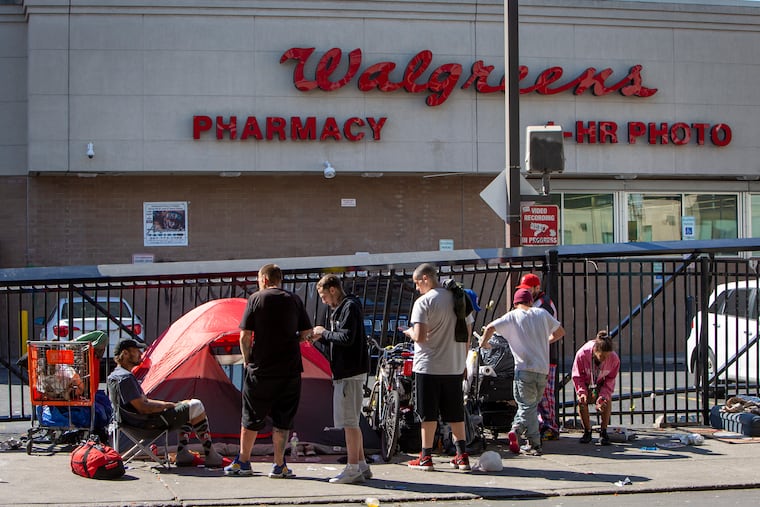Philadelphia will receive a $110M settlement from Walgreens in a lawsuit over the opioid crisis
The settlement comes a year after Philadelphia officials first announced plans for a massive $200 million payout in another lawsuit over the opioid crisis.

Philadelphia will receive $110 million over five years to settle its lawsuit against Walgreens over the national pharmacy’s role in the opioid crisis.
In its 2021 suit, the city said Walgreens had not adequately monitored suspicious orders for prescribed opioid painkillers, and had dispensed those highly addictive medications without “confirming they were issued for a legitimate medical purpose,” according to a settlement agreement released Friday afternoon.
Walgreens has denied wrongdoing and is not admitting fault. Both parties agreed to the settlement to “avoid the expense, delay, and uncertainty of litigation,” court documents say.
A spokesperson from Walgreens said in an email that the company remains “committed to being a part of the solution.”
”This settlement will allow us to keep our focus on the health and wellbeing of our customers and patients in the community, while making positive contributions to address the opioid crisis,” the company said.
In a news release, city officials said they would use the funds to address the opioid epidemic’s toll in Philadelphia’s “most impacted neighborhoods.” The funds will support “substance use education, treatment, prevention, and community engagement efforts,” the city said.
Some of the money will fund Mayor Cherelle L. Parker’s plans to revitalize the Kensington neighborhood, the area with the most fatal overdoses of any zip code in the city and where an open-air drug market has operated for years.
“Through this settlement, the City of Philadelphia has successfully held Walgreens accountable for oversupplying powerful drugs to people in our communities — with little consideration for the risk of addiction or harm posed by opioids,” Parker said in the release.
Philly’s share in opioid settlement funds climbs
The settlement comes a year after Philadelphia officials first announced plans for a $180 million payout in another lawsuit against a number of pharmaceutical companies involved in the distribution and marketing of opioid painkillers — drugs that fueled a nationwide explosion of addiction and overdose deaths.
That crisis is ongoing in Philadelphia: a record 1,413 people died of overdoses in the city in 2022, the last year for which complete data is available.
The city has said it planned to spend the $180 million opioid settlement fund on initiatives including improvements in Kensington and mobile clinics to dispense methadone and treat wounds caused by injection drug use.
Last month, Parker said her administration would no longer allow opioid settlement funds to pay for programs that supply sterile syringes to people with drug addiction. She has also proposed pulling city funding for syringes at Prevention Point Philadelphia, the public health organization that runs the city’s largest syringe services program.
Those decisions were criticized by public health researchers and addiction physicians who said they were concerned the move would increase the spread of blood-borne illnesses like HIV and hepatitis C.